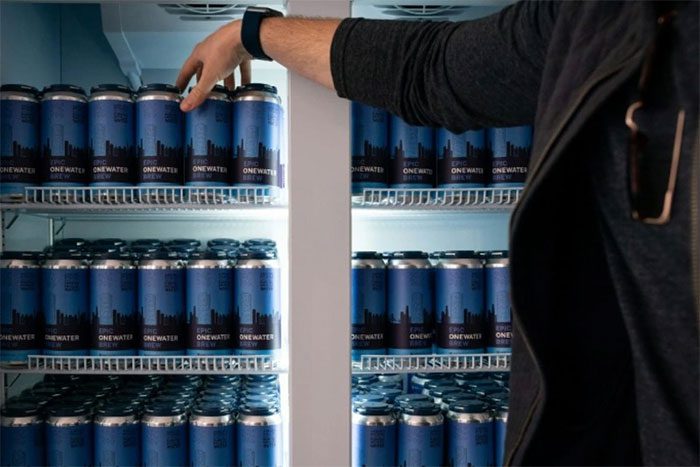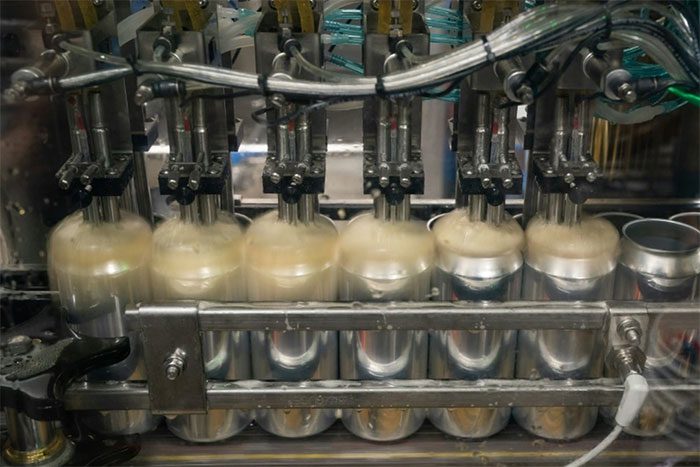This beverage utilizes an unexpected ingredient: recycled wastewater from a building in San Francisco, USA.
The head of the recycling company Epic Cleantec explains: “Household wastewater from residential areas to produce beer may sound unsanitary, but it is incredibly useful at a time when the western United States is grappling with severe droughts, worsened by global warming.”

Beer produced from wastewater from a building. (Photo: Science et Vie).
Beer has brought people together since the dawn of humanity. Thus, this is an amazing step to show the public that, in the face of climate change, recycled water is a great way to ensure the survival of our communities and future generations.
The wastewater used for beer production comes from showers, sinks, or washing machines in a building with 550 apartments, and the water is treated right in the basement. Previously, the wastewater was returned for residents to use, except for cooking and drinking.
California state law prohibits converting this type of wastewater into alcoholic beverages. In reality, after being filtered, the wastewater becomes as clear as crystal. Scientists affirm that it meets or exceeds federal drinking water quality standards.
To demonstrate this, the recycling company Epic Cleantec partnered with a brewery to create a beer inspired by the German Kölsch style, and this new product has no taste difference from traditional beer.
Water Filtering in Three Stages
First, the liquid undergoes a biological treatment process, allowing bacteria to attack and eliminate contaminants, similar to how food is digested in the human stomach.
Next, the water is filtered through ultra-fine membranes, with a diameter 1/1000 the size of a human hair, followed by sterilization using ultraviolet light and chlorine.

Treated wastewater is even purer than tap water from California. (Photo: Science et Vie).
This result surprised Chris Garrett, the owner of Devil’s Canyon Brewery, which produced 7,200 cans using water from the building. “Perhaps we have started using cleaner water than city water,” he shared.
The final taste exceeded all of Chris Garrett’s expectations; even one of his research friends tasted it without being able to distinguish it from a classic beer.
Beer from Wastewater was distributed for free at major events such as the recent Climate Week in New York, and the two companies aim to change California law to make this beverage commercially viable.
Threatened Water Sources
In the United States, places like Scottsdale, Arizona, have long recycled wastewater from treatment plants for irrigation of golf courses and crops. Other areas, such as Orange County, California, return this treated water to groundwater, serving as a buffer before it returns to residential areas for use.
Faced with prolonged drought conditions in the region, which are worsening due to climate change, water sources are dwindling.
The Colorado River, upon which millions of Americans depend, is increasingly threatened. Consequently, authorities are considering recycling wastewater for direct reuse without returning it to the natural environment.
Some experts suggest that California must adopt new measures in this direction by the end of 2023. This is known as Direct Potable Reuse (DPR), which has been in effect since 1968 in Windhoek, Namibia, a desert city.
However, it has sparked tension in the U.S., with detractors referencing wastewater stories, overlooking the recycling process, to evoke concerns about public health safety.
Nevertheless, a recent study from Stanford University indicates that recycled wastewater can be drinkable and may even be less toxic than other municipal water sources due to its stricter treatment processes.


















































